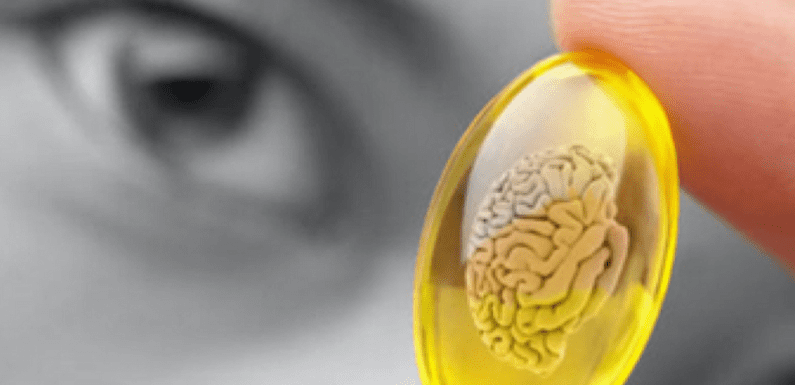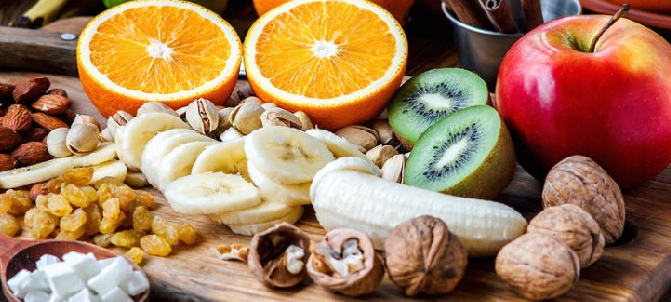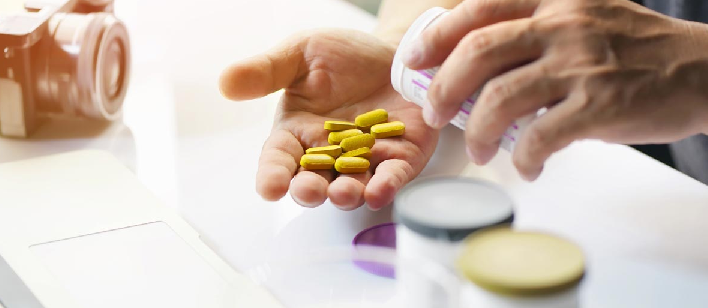
Whether its boosting brain power before a big test or warding off memory loss in old age, people use nootropics for an array of personal and professional reasons. Regardless of what people use nootropics for, everyone’s looking at the same goal: to get more done in a shorter amount of time.
What Are Nootropics?
Nootropics are any compounds, supplements, or drugs designed to improve cognitive function. They’re used by people all over the world to improve intelligence, creativity, and motivation. In addition to supercharging productivity, nootropics can make you smarter and less stressed.
The term “nootropics” first referred to chemicals that met very specific criteria. But now it’s used to refer to any natural or synthetic substance that may have a positive impact on mental skills.
Nootropics supplements are of two types, prescription and nonprescription. Prescription medication gives stimulant effects, counteracting the symptoms of medical conditions such as attention deficit hyperactivity disorder (ADHD), Alzheimer’s disease, or narcolepsy while nonprescription medications are used to boost mental performance due to their cholinergic mechanisms.

Nootropics offer a range of cognitive benefits, including faster reaction time, increased alertness, improved memory, and decreased mental fatigue and fog. Some nootropics are also adaptogenic, meaning they help your body manage stress.
Neurogenesis is the creation of fresh new brain cells. It is a process of utmost importance that ensures consistency in the functioning of your brain. As old cells are overused and depleted, new cells take their place to perform the same functions. At any point in your lifecycle, if these cells were to stop coming in, you’d run into the terrible scenario: neurodegeneration — where your current cells are dying, and new cells are not being formed to take their place.
In case you are susceptible to neurodegeneration, you will experience memory loss, anxiety, mood changes, forgetfulness and many more. At www.health-listing-directory.com it’s noted that in extreme cases, it could lead to permanent mental disabilities as your brain shrinks away in size. Alzheimer’s disease is the most common neurodegenerative disorder.
Nootropics have been found to assist neurogenesis primarily by enhancing Nerve Growth Factors (NGF) and Brain-Derived Neurotrophic Factors (BDNF) while also raising levels of brain-building blocks. Some nootropics will increase brain power production to meet the high energy demands of making new brain cells.

The Best Nootropics
Nootropics are either used alone or in combination with other nootropics. This is referred to as stacking. Such compounds, which can be natural or synthetic, are more extensively researched than those used alone.
Bacopa Monnieri
Brahmi, or Bacopa monnieri, is a fundamental herb in Ayurvedic medicine. It thrives in wet, tropical environments and can survive well under water. Like many other natural nootropics, this powerful herb is known to support mental performance while reducing stress. Another perk of supplementing with Bacopa monnieri is that it contains adaptogens, which fight off the free radicals linked to heart disease, diabetes, and cancer.
Caffeine
Almost everyone uses a nootropic, whether they know it or not. We’re talking about caffeine, and while it can have health risks if you overdo it, this natural stimulant has been shown to improve thinking skills. It doesn’t simply make you feel more alert, caffeine also gives you more access to several chemicals (neurotransmitters) in your brain such as acetylcholine, which helps with short-term memory and learning.
Caffeine is the most widely consumed psychoactive substance in the world. It’s naturally found in coffee, cocoa, tea, kola nuts and guarana and added to many sodas, energy drinks and medications. It can also be taken as a supplement, either on its own or in combination with other substances.
Caffeine works by blocking adenosine receptors in your brain, making you feel less tired. A low to moderate caffeine intake of 40–300 mg increases your alertness and attention and decreases your reaction time. These doses are especially effective for people who are fatigued.
Creatine Monohydrate
Frequently found in body-building supplements, creatine helps build muscle mass. But studies have also found that it may improve reasoning skills and short-term memory in healthy people. It increases levels of a molecule called ATP, which leads to more cellular energy.
L-Theanine
L-theanine is a naturally occurring amino acid found in tea, but it can also be taken as a supplement. Several studies have shown that taking 200 mg of L-theanine has a calming effect, without causing drowsiness.
Taking even just 50 mg — the amount found in roughly two cups of brewed tea — has been found to increase alpha-waves in the brain, which are linked to creativity. L-theanine is even more effective when taken with caffeine. For this reason, they’re often used together in performance-enhancing supplements. What’s more, they are both naturally found in tea.
Ginkgo Biloba
Lush and leafy, ginkgo biloba is one of the oldest living tree species. It’s a popular natural nootropic that has a positive effect on cognitive function. Practitioners of Chinese medicine use the herb to reduce dementia symptoms and reverse depression symptoms.
Gingko may play a role in improving blood flow, which can support artery health and reduce the chance of stroke. Other studies demonstrate the positive impacts of Gingko on eye health. Age-related macular degeneration, the leading cause of vision loss, may be slowed with a regular ginkgo biloba supplement.
Prescription nootropics largely consist of stimulants such as those in some ADHD medications. Although these work well for many people with ADHD, they are not recommended for others who simply want to improve their focus and attention. Many college students get these types of drugs illegally, and while they may seem to help in the short term, there are serious risks.